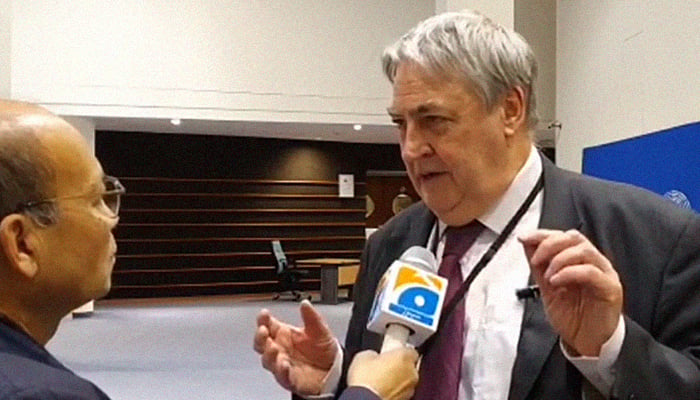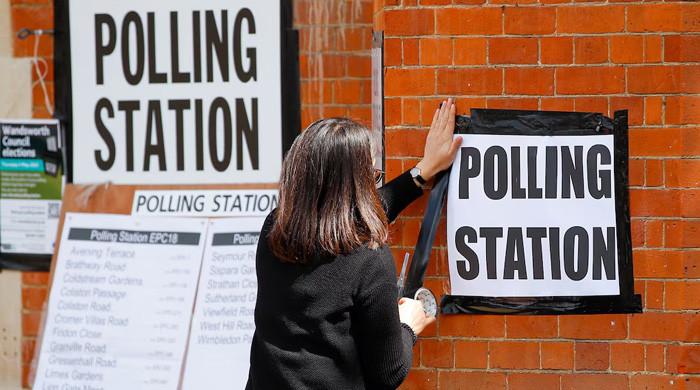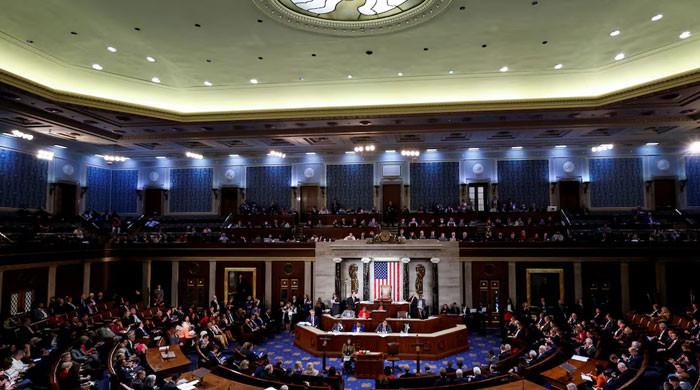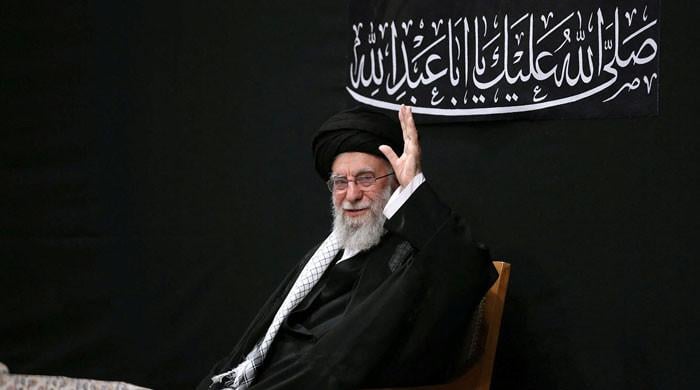European Parliament defers vote on India's controversial citizenship law
European Parliament must not surrender before India's might, says Scott Anslie MEP
January 30, 2020

BRUSSELS: The European Parliament on Thursday voted to delay a vote on a resolution against India's controversial Citizenship (Amendment) Act, 2019 (CAA), angering many members of European Parliament (MEPs) who had originally brought the motion.
The MEPs condemned New Delhi, accusing it of using Indian diplomatic clout and the European Union's business interests to influence the move to delay the vote. By doing so, the EU has chosen business interests over human rights, they said.
"European Parliament should not surrender before Indian power," said MEP Scott Ainslie.
In what is being considered a major step towards fascism, the government of Prime Minister Narendra Modi has systematically introduced laws in India aimed at stripping off the citizenship of many minorities, particularity Muslim communities.
India exerted an enormous amount of diplomatic pressure on the European Parliament and the EU, threatening them with the cancellation of Indian Foreign Minister Subrahmanyan Jaishankar’s upcoming visit to the EU — set for February 17 — if the vote went ahead.
India pressurised the EU into letting Jaishankar explain and justify the CAA and other recent legislation, despite many MEPs seeing the move as a contradiction of the UN's Charter of Human Rights and a gross violation of the 1950 UN resolution.
Nordic Green Left MEP Idoia Villanueva Ruiz said the recently-passed laws in India — namely the CAA 2019 and National Register of Citizens (NRC) and the revocation of Articles 370 and 35A — all conflicted with democratic values and violated international law. The MEP said Modi government's repression of Kashmir was tantamount to fascism and should be condemned.
Most right-wing and far-right European parties supported India's official stance on the CAA, stressing that it would protect persecuted refugees from neighbouring countries.
Right-wing MEPs, including Italian and Polish ones, were at the forefront to speak against the resolution. Two Indian-origin MEPs from the UK — Liberal Dinesh Dhamja and Socialist-Democrat Neena Gill — praised India for its democratic credentials, towing Modi's line on the controversial legislation in India. The latter accused the MEPs — who initiated the resolution in the parliament — of working for Pakistan's interests.
Many MEPs said they will wait for the India's Supreme Court to rule on the CAA.
The principle writer of the draft resolution, Shaffaq Mohammed MEP, said the CAA must be judged on the basis of international law and must be repealed if it contradicts it.
Michael Gahler MEP from Germany, who has thrice headed the EU Election Observer Mission to Pakistan, was of the view that the vote should take place on March 2 — 10 days before Modi’s visit to EU.
It was interesting to note that the European People's Party (EEP) — which is the largest group in the European Parliament and also a sponsor of the resolution — did not have a position on the resolution.
In her opening remarks, European Commission Vice President Helena Dali expressed deep respect for India but at the same time said "we want [to] open dialogue with India in all the fields."
She added: "No law should contradict strategic partnership agreement 2005 between India and the EU", officially the EU-India Strategic Partnership.
Dali also referred to EU Foreign Affairs Minister Josep Borrell's recent visit to India to deepen their strategic partnership with the country.
Phil Bennion MEP, a Liberal Democrats member of the Renew Europe Group from UK, said Modi’s India was deceptive and Europe failed to comprehend the manipulation, aggression, discrimination, and fascist tactics of the Indian government.
"Clearly, the Indian lobby has been very very effective in mobilising its supporters to put in for speaking time and for speaking in the chamber. And of course this has happened in the past as well. The Indian lobby is very effective here. Its also very effective in Westminster.
"The lesson I think to be learnt from Pakistan, for Bangladesh, for Kashmir is that their lobbies are not nearly as effective as the Indian lobby," Bennion added.
"People still believe in the previous secular democratic India, which has transformed into the populist discourse of Hindutva."
The vote on the debate was moved to March.











